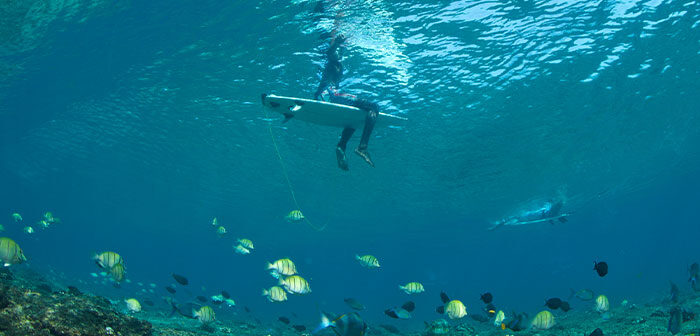With great white sharks, it’s not personal. If they see you swimming on the surface of the water, they’ll probably think you’re a seal or a sea lion, and you just represent the next meal in their lifelong food chain.
That’s the conclusion of a new study just published in the Journal of the Royal Society Interface that explored the theory that many great white bites, particularly juvenile great white bites, are simply a case of mistaken identity.
“These are not mindless killers, but we just happen to look like their food,” said Dr. Laura Ryan, of Macquarie University in Sydney, Australia, and the lead author of the study. She’s also a surfer, and the study found that surfers are the highest-risk group for fatal shark bites.
Dr. Ryan and her colleagues took visuals of people swimming, surfing and riding paddle boards, as well as visuals of pinnipeds (seals, sea lions and walruses) and used computer modeling to see how they would appear from the viewpoint of a shark swimming below. The visuals were processed to reflect how a shark’s retina would detect shape and motion.
Many shark attacks lately have been by juvenile sharks that are usually eight to ten feet long. Their eyesight is not very good, and they tend to be colorblind, seeing ocean water in various shades of gray. They also tend to release a person after the first bite, indicating that they may realize that a person is not a seal.
The study found that from the shark’s perspective, “neither visual motion nor shape cues allow for an unequivocal visual distinction between pinnipeds and humans, supporting the ‘mistaken identity’ theory behind some bites.”
In a press release, Dr. Ryan said, “We found that surfers, swimmers and pinnipeds on the surface of the ocean will look the same to a white shark looking up from below because the sharks can’t see fine details and colors.” Read more:
https://royalsocietypublishing.org/doi/10.1098/rsif.2021.0533




